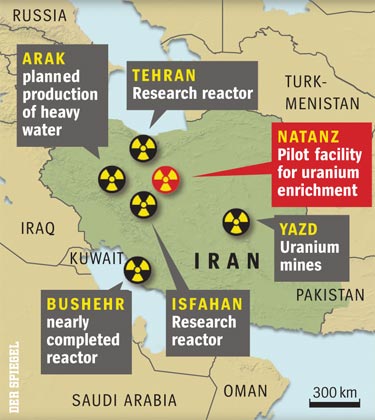Iran’s behavior poses the greatest risk to stability in the Middle East, the commander of U.S. Central Command warned on Tuesday.

Mattis, the top U.S. Commander in the Middle East, added that the Iranian government’s “reckless behavior and bellicose rhetoric characterize a leadership that cannot win the affection of its own people or the respect of any responsible nation in the region.”
He said that the current sanctions and diplomatic efforts to stop Iran from gaining nuclear capabilities are not working, noting that Tehran has a history of denial and deceit and is enriching uranium beyond any plausible peaceful purpose.
General Mattis said that while it may still be possible to use sanctions and other pressure to bring Tehran to its senses, Iran is using the negotiations to buy time.
Mattis was asked if the U.S. can bring Iran to its knees, to which he replied that the U.S. still has a number of ways to do that, even short of open conflict.
Iran’s continued support for the Assad regime in Syria, Mattis said, coupled with its maligned activities in the Middle East raise the risk of Iranian miscalculation sparking a disastrous conflict.
The general cited Iraq, Afghanistan, Lebanon, Bahrain, Yemen and Gaza as places where Iran has attempted to derail stability in the region.
“Even here in Washington, D.C., [Iran made] an attempt to kill the Saudi ambassador,” said Mattis. Iran remains a threat elsewhere in the world, as well as in the cyber domain, he added.
On Monday, U.S. Secretary of State John Kerry warned that talks with Iran over its nuclear development activities “will not go on for the sake of talks.”
Speaking in Riyadh on his first tour of the Middle East, Kerry told reporters that his discussions with foreign ministers from Gulf nations had covered the ongoing talks between world powers and Iran over its nuclear development program.
Iran has just announced it is installing 3,000 advanced centrifuges to enrich uranium at its Natanz nuclear plant — a move the United Nations International Atomic Energy Agency (IAEA) warned two weeks ago was about to take place.
The window of opportunity for a diplomatic solution to the Iranian nuclear problem “cannot by definition remain open indefinitely,” Kerry said. “There is time to resolve this issue – providing the Iranians are prepared to engage seriously” on ways to defuse the crisis.
But, he added, negotiations “will not go on for the sake of talks,” pointing out, “Talks cannot become an instrument for delay that in the end will make the situation more dangerous. There is a finite amount of time.
On Sunday, Defense Minister Ehud Barak addressed the AIPAC conference in Washington, warning that when Israel says all options are on the table regarding stopping the Iranian nuclear program, it means what it says.
Source material can be found at this site.









